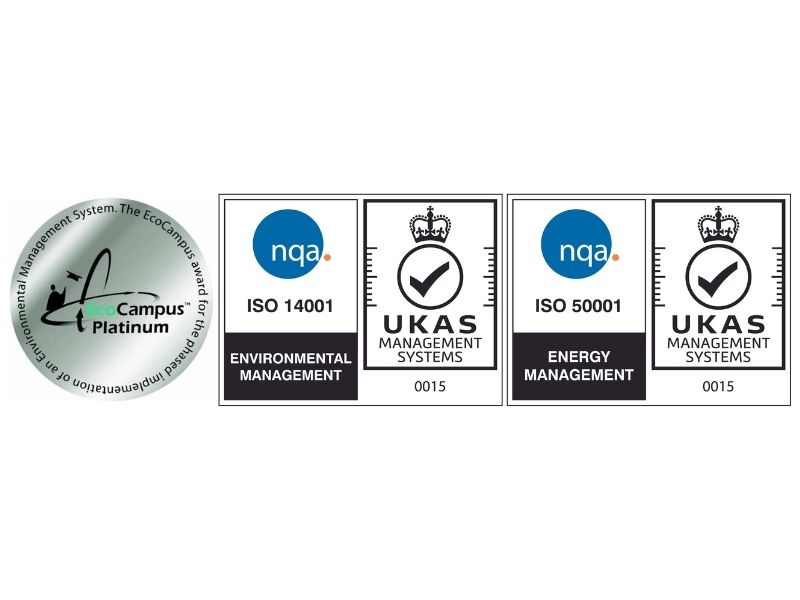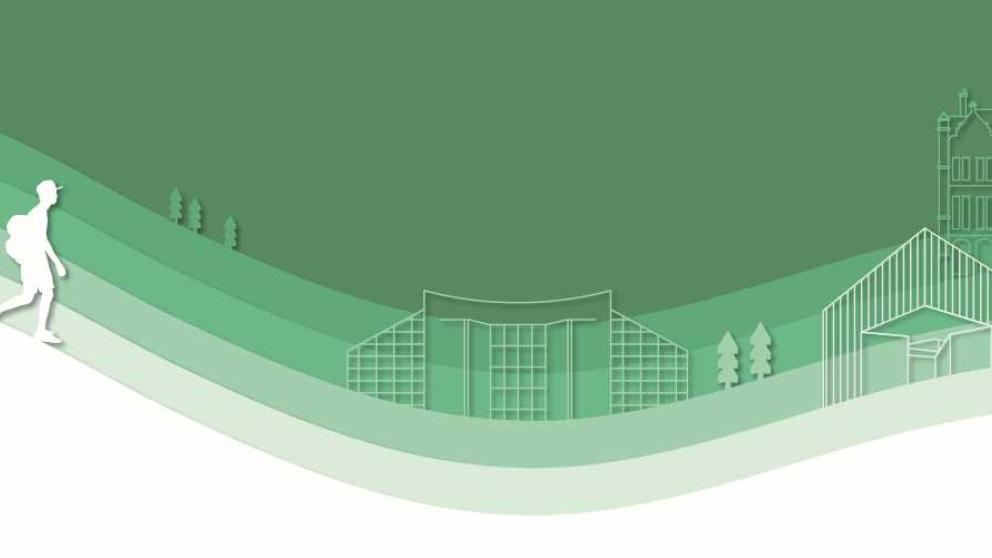Environmental and Energy Management System
The University Environmental and Energy Management System (EEMS) aims to reduce the environmental and energy impacts of the University’s activities using a structured framework based around ensuring compliance with legal and other requirements, continual improvement and embedding sustainability into key business processes.
An Environmental and Energy Management System is similar to other management systems, such as those that manage quality or safety.
Certification

The University EEMS has been certified to the internationally recognised standards ISO 14001:2015 and ISO 50001:2018 since 2019.
The University implemented a phased approach to development of the EEMS using the EcoCampus framework for which Platinum was achieved in 2019, alongside the ISO standards.
Outcomes
The EEMS structure is based around the Plan-Do-Check-Act to drive progress and continual improvements in environmental and energy performance.
The system enables us to understand the context in which the University currently operates; it's internal and external influencing factors, risks and opportunity and interested parties; assess our strengths and weaknesses; identify and manage our significant environmental impacts; increase efficiency; help ensure compliance with environmental legislation and provide benchmarks for improvements.
The University Environmental Sustainability Policy sets the framework for establishing environmental and energy objectives and targets which are set out in the Sustainable Campus Plan.
Scope
The Environmental and Energy Management System scope has been determined to apply to all activities, products and services of the University of Salford Estates and Facilities Division and Campus Experience, including:
- Building and facilities management, including waste management
- Energy management
- Building services, including reactive and planned maintenance
- Security
- Landscaping
- Estates projects management (new builds, capital schemes, refurbishments and minor works)
- Sport
- Travel and transport
- Catering (including Old Fire Station Bakery and Larkhill Brewery)
- Conferencing and events
- Student accommodation partnership
The scope includes all key buildings at the University campuses, including the campus at MediaCity, and all University owned land. In terms of energy management, all energy sources utilised at the university are included within the scope including electricity (grid), natural gas, vehicle fuel and solar photovoltaic. It should be noted that buildings no longer in operational use and/or mothballed will be excluded from the scope for energy management.
The following are not included within the scope as the organisation does not have direct control. However, they are within the sphere of influence and so will be affected through the EEMS by means of contract management, communication programmes or participation in sustainability working groups.
- Activities, products and services carried out by other organisations on land and/or property owned by the University and leased to these organisations e.g. Peel Park Campus student accommodation and Students’ Union.
- Teaching, Learning and Research at the University of Salford
Responsibilities
The EEMS is managed by the Environmental Sustainability Team based in the Estates and Facilities Division. The senior management team in Estates and Facilities have overall responsibility for the EEMS, via the Environmental Projects Board.
Everyone at the University, including people working on behalf of the University, have an important role to play. This may mean switching equipment off when you have finished, using the right recycling bin, responsible and ethical procurement, purchasing energy efficient equipment or operating in a manner that protects the environment and saves energy. You can find out more at the link below. If you are unsure of your role, then email sustainability@salford.ac.uk.
We encourage all staff, students and anyone working on behalf of the University to make suggestions on how we can improve energy and environmental management at the university. To get involved or make suggestions please email sustainability@salford.ac.uk.

